Praise for the Previous Edition
The book covers important aspects of OD. The knowledge provided is comprehensive. The academicians and practioners of OD will find the volume useful.
Gitika Kapoor , in Prashasnika , Vol. 26:1 (JanuaryJune 1999)
Overall, the edited volume is a highly scholastic one. Methodologically, the book is properly organized by categorising the papers under three sections: Concepts and Issues; Experience; and Strategies. A very useful book for practising Managers.
Asutosh Satpathy , in Indian Journal of Training & Development , Vol. 29:2 (AprilJune 1999)
The editors have to be commented [sic] for eliciting so much from so many.
Kalburgi M. Srinivas , in Journal of Human Values , Vol. 5:1 (1999)
[It] is very relevant for business organizations and non-governmental organizations. It will be useful for owner-managers, HRD practitioners, trainers and scholars in the field.
Sunil Shukla , in Journal of Entrepreneurship , Vol. 8:1 (1999)
As there is dearth of literature by Indian authors on O.D. which is still in the process of evolving as a separate discipline, the book Organization Development: Interventions and Strategies fills in the gap and is a welcome addition.
Dr Radha Sharma , in Abhigyan , Vol. 16:3 (1998)
[The] book will prove to be of immense use for CEOs, OD/HRD consultants, management students, teachers as well as for people involved in managing NGOs as the book also carries two articles written for managing change in NGOs or voluntary organizations.
Dr Sami A. Khan , in Management & Change , Vol. 2:2 (JulyDecember 1998)
Liberally illustrated with examples and real-life cases, the book talks about organisation development as a process that aims at building internal competencies in individuals and teams, and through that taking organisations to higher levels of performance. This is a welcome addition to the growing body of literature on organisational development.
As reviewed in Business India (1023 August 1998)
This book provided a comprehensive account of the experience of applying OD processes in the Indian Environment.
As reviewed in Hindu Business Line (31 August 1998)
H alf Title
ORGANIZATION DEVELOPMENT
(Second Edition)
ORGANIZATION DEVELOPMENT
Accelerating Learning and Transformation
(Second Edition)
Edited by
S. Ramnarayan
T.V. Rao
C opyright S. Ramnarayan and T.V. Rao, 2011
All rights reserved. No part of this book may be reproduced or utilized in any form or by any means, electronic or mechanical, including photocopying, recording or by any information storage or retrieval system, without permission in writing from the publisher.
First published in 1998
Second revised edition published in 2011 by
.png)
Sage Response
B1 / I-1 Mohan Cooperative Industrial Area
Mathura Road, New Delhi 110 044, India
Sage Publications Inc
2455 Teller Road
Thousand Oaks, California 91320, USA
Sage Publications Ltd
1 Olivers Yard, 55 City Road
London EC1Y 1SP, United Kingdom
Sage Publications Asia-Pacific Pte Ltd
33 Pekin Street
#02-01 Far East Square
Singapore 048763
Published by Vivek Mehra for Sage Publications India Pvt Ltd, typeset in 10.5/12.5 pt Galiard BT by Star Compugraphics Private Limited, Delhi and printed at Chaman Enterprises, New Delhi.
Library of Congress Cataloging-in-Publication Data
Organization development: accelerating learning and transformation/edited by S. Ramnarayan, T.V. Rao.
p. cm.
Includes bibliographical references and index.
1. Organizational change. I. Ramnarayan, S. II. Rao, T. V.
HD58.8.O7234 658.406dc23 2011 2011032615
ePUB ISBN: 9788132107392
The Sage Team: Rekha Natarajan, Pranab Jyoti Sarma, Mathew P.J. and Deepti Saxena
To
Our Dear Mentor
Professor Udai Pareek
for his long, sustained, and significant contributions
to the field of Organization Development
Dedication Page
Vivek Mehra, Managing Director and CEO,
SAGE Publications India Pvt Ltd, New Delhi
Bulk Sales
SAGE India offers special discounts for purchase of books in bulk. We also make available special imprints and excerpts from our books on demand.
For orders and enquiries, write to us at
Marketing Department
SAGE Publications India Pvt Ltd
B1/I-1, Mohan Cooperative Industrial Area
Mathura Road, Post Bag 7
New Delhi 110044, India
E-mail us at
Get to know more about SAGE, be invited to SAGE events, get on our mailing list. Write today to
Contents
1 Introduction to Organization Development
S. Ramnarayan and Neha Gupta
3 Rethinking Resistance to Change
S. Ramnarayan and Christian Harpelund
5 Role-focused OD Interventions
Udai Pareek
7 Survey Feedback as OD Intervention: Some Experiences
T.V. Rao
8 HRD Audit as an OD Intervention
T.V. Rao
10 Role of Power and Politics in OD
Udai Pareek, S. Ramnarayan, and Neha Gupta
11 Four Leadership Roles for OD
S. Ramnarayan
Participation: Considerations for Designing Process
S. Ramnarayan
17 Diagnosing Organizational Issues through Training Workshops
S. Ramnarayan and V. Nilakant
25 Transformation of Mawana Sugars: Power of Appreciation and Involvement
Anil Sachdev
Articulating a New Vision for SBI
Rajesh Chakrabarti
27 Changing Mindsets: Indian Railways Experience
V. Nilakant and S. Ramnarayan
This book was originally conceived as the second edition of our previous book Organization Development: Interventions and Strategies , edited by S. Ramnarayan, T.V. Rao, and Kuldeep Singh, published in 1998. It is highly gratifying that the book continues to be received well even today. The volume was put together within a few years of the liberalization initiated by the Indian government in the early 1990s. Faced with the challenges of growth in an emerging, liberalized competitive environment, Indian organizations needed, more than ever before, to be sensitive to mobilizing the energies of individuals, groups, and larger collectivities in organizations. Our volume of original essays by leading OD/HRD experts provided quite a comprehensive account of the conceptual frameworks and practices, so that readers could gain insights on what it takes to apply OD process to get organizational members ready to take on challenges. We included a number of short case illustrations in our essays. There was also a conscious attempt to bring out practice issues. But the focus of the volume was primarily on discussing concepts and interventions that the discipline of OD had created to build individual, team, system, and process related competencies and thus take organizations to higher levels of performance. The book has consistently done well ever since it was published. That is why we were asked by the publishers to bring out a revised edition.
To begin the process of working on a second edition of Organization Development , we talked to a cross-section of professional colleagues from the worlds of academia and practice. It became quite apparent to us that the book needed more than just a revision. The world is no longer the same. For instance, we have today organizations like Google, eBay, or Wikipedia that work with an entirely different social architecture that organizes large numbers of people for mass collaboration. These firms were nonexistent in the early 1990s when our first edition was taking shape. At the present juncture, workforces in the emerging world are four times larger than those in the West. It is expected that emerging economies share of global GDP will have risen to 61 percent (at purchasing power parity) by 2025. While several firms in the advanced economies are staring at stagnant growth, many in the emerging markets are experiencing exponential growth.

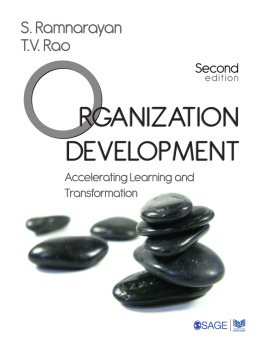


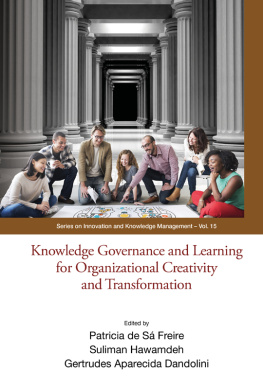
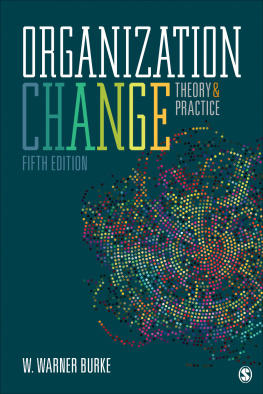
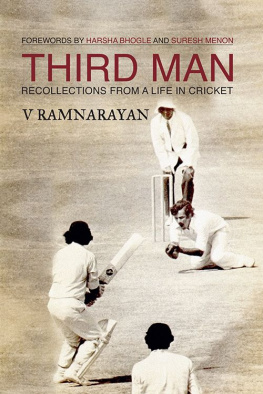
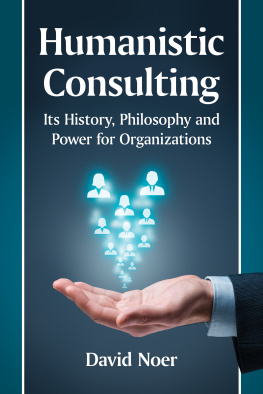

.png)
.png)
